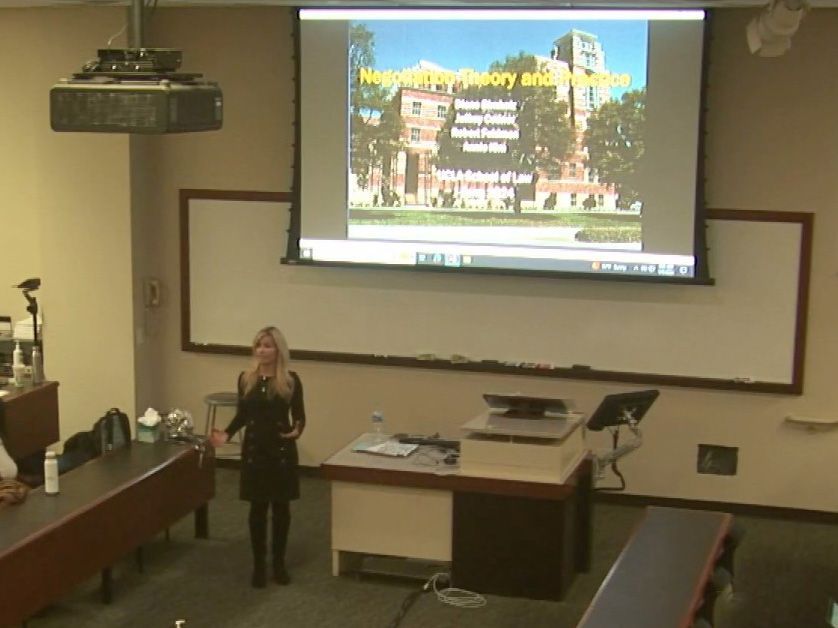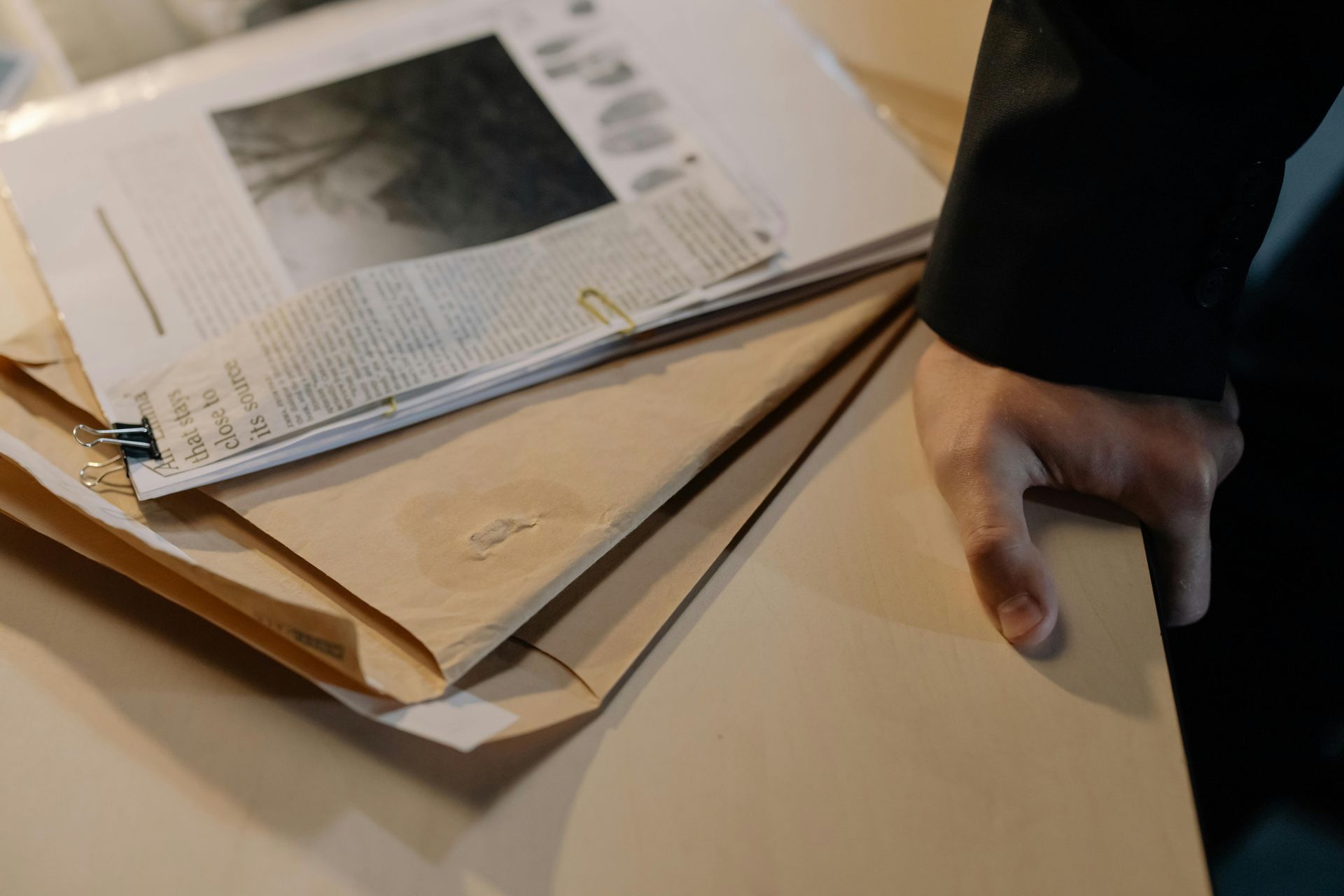Lectures & Training
Bringing real-world courtroom experience to life as a UCLA Law lecturer and private trainer for attorneys and law students.
Bringing Courtroom Clarity and Confidence to Law Students and Legal Teams.

Courtroom experience. Academic excellence. Legal training that makes an impact.
As a seasoned Lecturer at UCLA School of Law, Diane Birnholz brings real-world courtroom expertise directly to the classroom. A former federal prosecutor with experience trying high-stakes criminal cases, Diane currently teaches Negotiation Theory & Practice at UCLA Law, and has also taught Criminal Trial Advocacy, Legal Research & Writing, Lawyering Skills, and Civil Trial Advocacy. Her courses equip law students and legal professionals alike with the practical skills, strategic thinking, and courtroom confidence they need to succeed. Her students hail from all over the country and all over the world, as Diane has extensive experience teaching J.D. students (1L, 2L, and 3L) as well as LL.M. and MLS students.
In addition to her UCLA Law teaching, Diane partners with legal organizations nationwide to provide custom legal trainings and workshops. Recent private experiential seminars include attorney training on Negotiation Strategy and a crash-course in Cross-Examination Techniques.
Diane’s teaching style is dynamic, approachable, and rooted in real-world experience. Students have praised her brilliance, clarity, energy, and relatability—so much so that they even attempted to nominate her for “Professor of the Year” (a title she couldn’t claim as a part-time lecturer). She laughs recalling that she once received a lighthearted "Most Likely to Be Mistaken for a Student" award—a reflection of her friendly and fun teaching style and the strong connection she builds with students.
Whether for university lectures or private legal workshops, Diane is available to deliver engaging, courtroom-tested legal education tailored to your needs.
Want to book a lecture or private legal training?
Contact Diane to bring courtroom expertise and engaging instruction to your law school, bar association, or legal team.
Course Topics
Previously taught university courses, private workshops, and proposed future topics
University / Law School Courses
-
Criminal Trial AdvocacyItem link List Item 1
From case prep to closing arguments—hands-on courtroom training led by a former federal prosecutor.
-
Advanced Cross-Examination TechniquesItem link List Item 2
Tactics, tone, and timing for taking control of the courtroom.
-
Negotiation Theory & PracticeItem link List Item 3
Psychology meets strategy in this real-world course on legal negotiation.
-
Federal Criminal PracticeItem link List Item 4
A behind-the-scenes look at federal cases—from investigation through appeal.
-
Storytelling & Persuasion for Trial LawyersItem Link
The art of crafting compelling narratives in high-stakes litigation.
-
White Collar Crime & Complex InvestigationsItem Link
Explore fraud, wire crimes, and prosecutorial discretion in complex federal cases.
-
Legal Communication & On-Camera AdvocacyItem Link
How to speak clearly, persuasively, and confidently—in court or in the media.
-
Law & Media: Legal Analysts in the Age of True CrimeItem Link
An interdisciplinary course for law and journalism students on legal commentary, ethics, and storytelling.
-
Women in Criminal Law: Leadership, Ethics, and AdvocacyItem Link
A mentorship-style course exploring challenges and opportunities for women in litigation.
CLE & Professional Workshops
-
Negotiation Skills for Litigators and In-House CounselItem link List Item 1
Master real-world negotiation strategies rooted in psychology, preparation, and persuasion. This session teaches lawyers how to think three moves ahead while maintaining ethical integrity and client confidence.
-
Winning Opening Statements & ClosingsItem link List Item 2
Learn how to structure and deliver powerful courtroom narratives that resonate with juries and judges. This course draws from real federal cases to show what makes a lasting first—and final—impression.
-
Media Training for Legal ProfessionalsItem link List Item 3
In today’s media-driven world, legal experts must be clear, concise, and compelling on camera. This training covers how to speak with confidence in interviews, manage public messaging, and maintain professionalism under pressure.
-
Cross-Examination BootcampItem link List Item 4
Take command of the courtroom with this tactical session on cross-examination. Learn how to control witnesses, expose weaknesses, and avoid common traps—all while preserving your credibility and style.
-
Crafting Your Legal Narrative for Court or CameraItem Link
This interactive course helps litigators develop persuasive storytelling skills for both courtroom argument and media commentary. Ideal for attorneys transitioning into public-facing roles or content creators in the legal space.
-
Mock Trial Facilitation & Feedback SessionsItem Link
Practice makes powerful. In this customizable session, participants engage in structured mock trial exercises with live feedback from a former federal prosecutor. Perfect for trial teams, summer associates, or litigation bootcamps.
Legal Writing & Learning Materials Samples

EDUCATION & TRAINING
Testimonials
It has been a pleasure working with you. Considering the feedback I’ve received, I’m certain more courses will be scheduled in the next quarter(s) and that I’ll be reaching out to you. Thank you and great job!
Attorney Training Firm for a crash course in Cross Examination
Professor Birnholz is an absolutely delightful professor who explains concepts and concerns in a very digestible and productive way. She also exudes so much enthusiasm for the subject matter and for providing helpful feedback that it made me feel excited to hear what she had to say after every negotiation simulation.
Student, UCLA Negotiation course
Professor Birnholz is the perfect instructor for an intro trial advocacy course. She is engaging, extremely knowledgeable in the subject matter and practical skill, and committed to providing each student with consistent and substantive feedback. Perhaps most importantly, her style and disposition creates a welcoming and risk-free atmosphere for a class that has a tendency to be difficult for students.
Student, UCLA Trial Advocacy course
Two things were manifestly obvious: Birnholz’s deep expertise in the subject matter, and Birnholz’s skill working in real time with students to variously explain, elicit peer feedback, and encourage improved performance from students as they performed the cross examination. She has an uncommon ability to both uphold high standards while encouraging student improvement. ... The students appeared uniformly relaxed and supported, yet intensely thoughtful and focused at all times. I sensed an extraordinarily high rapport between the students and Birnholz, and the students with each other...
UCLA Colleague, Faculty evaluation
Professor Birnholz has all the knowledge and skill you would look for in an instructor, but also the patience and willingness to engage on an individual level to make sure everyone actually learns and improves. She provides extensive, detailed individual feedback on every exercise.
Student, UCLA Trial Advocacy course
Amazing teacher! Kind, brilliant, a pleasure to be in class with. She conducts class in a way that truly facilitates learning.

